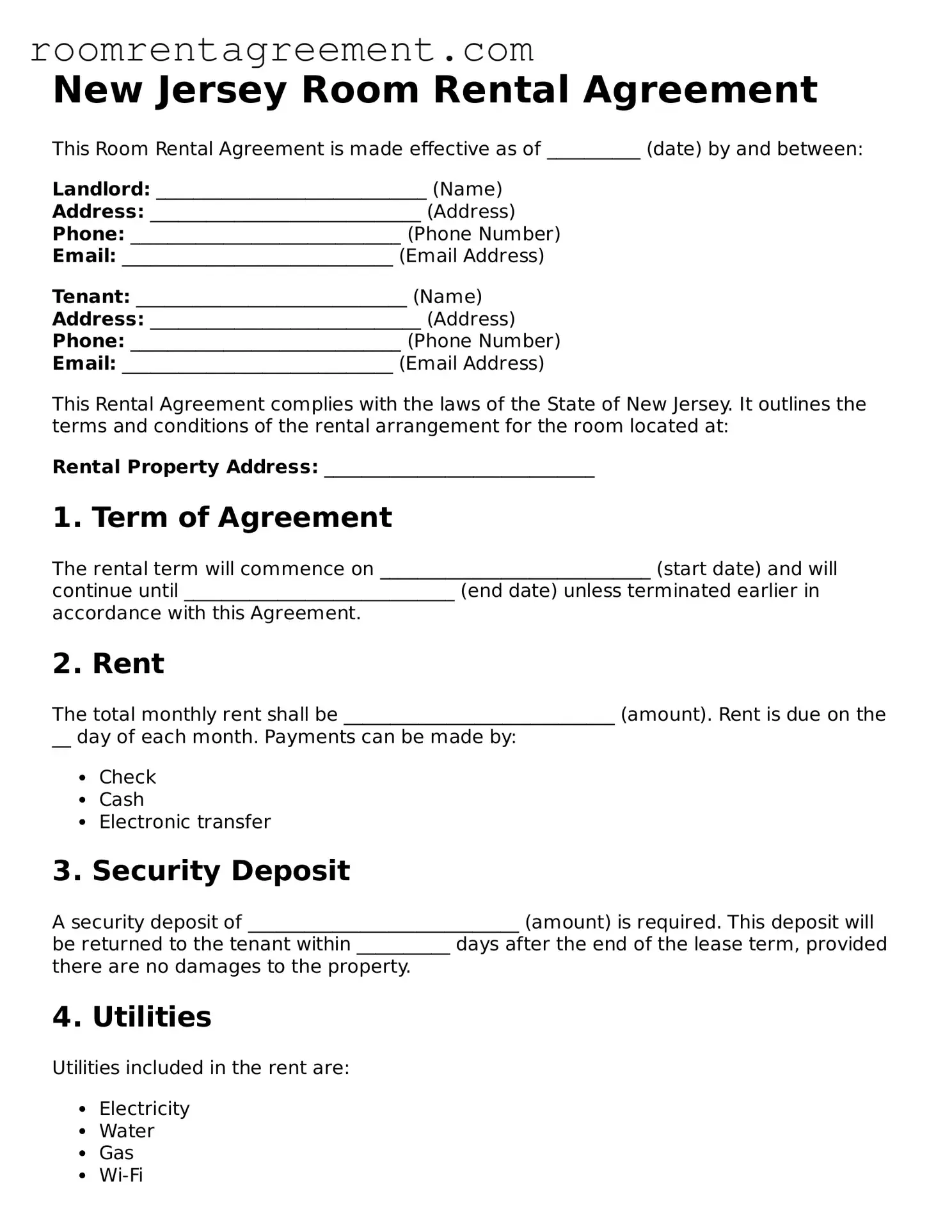More About New Jersey Room Rental Agreement
-
What is the New Jersey Room Rental Agreement form?
The New Jersey Room Rental Agreement form is a legal document that outlines the terms and conditions under which a room is rented in the state of New Jersey. It serves to protect both the landlord and the tenant by clearly defining their rights and responsibilities.
-
Who should use this agreement?
This agreement is ideal for landlords renting out individual rooms in a shared living space or tenants seeking to rent a room. Both parties should review the terms carefully to ensure clarity and mutual understanding.
-
What key elements are included in the agreement?
- Names of the landlord and tenant
- Description of the rental property
- Rental amount and payment terms
- Duration of the rental period
- Security deposit details
- Rules regarding the use of common areas
These elements help establish a clear framework for the rental arrangement, minimizing potential disputes.
-
Is a security deposit required?
Yes, a security deposit is typically required. The amount can vary but is generally equivalent to one month's rent. This deposit protects the landlord against potential damages or unpaid rent and should be clearly stated in the agreement.
-
Can the agreement be modified?
Yes, modifications can be made if both the landlord and tenant agree. Any changes should be documented in writing and signed by both parties to ensure they are enforceable.
-
What happens if either party wants to terminate the agreement?
Termination procedures should be outlined in the agreement. Typically, a notice period is required, which allows both parties to prepare for the end of the rental arrangement. This period is often 30 days, but it can vary based on the terms agreed upon.
